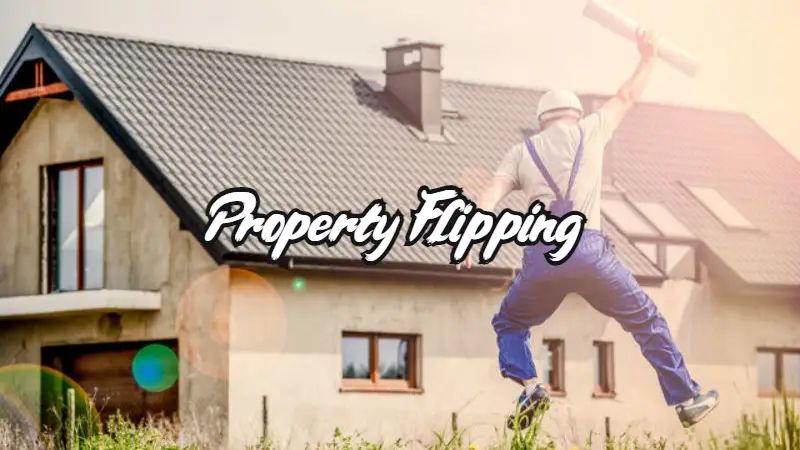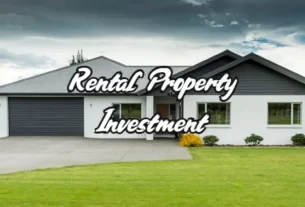Flipping Property
With the recent boom in house prices in New Zealand, everyone has their eyes on property investment. You've probably heard stories about people making large amounts of money via renovation projects. Well, these stories aren't project lies - they're out there! Before you get too excited though, you should know that this isn't going to be easy money, and in fact, it all depends on local laws, property prices, and more. To get you started, we've put together a guide to flipping houses for beginners to help demystify the world of flipping property and enable you to start making money from renovating for profit in NZ. Let's take a look at what you need to know about flipping houses in New Zealand.

Flipping Property
A guide to property flipping in New Zealand : Property Flipping
Top tips for beginners looking to flip property in New Zealand : House Flipping Tips
Learn how to make business plans on how to flip property in New Zealand : House Flipping Business Plan
Check out what is the 70% rule when it comes to flipping property in New Zealand : 70% Flipping Rule
Check out how much you can make flipping properties in New Zealand : Flipping Profits
What you need to know when it comes to property investment laws in New Zealand. Property Investment Laws
House Flipping 101
House flipping is the practice of buying a property, renovating it and reselling it for a profit. This can take as little as one week or as long as several months or years, depending on the scope of the project and the reason behind doing it.
Flipping houses is one of the most popular ways to make money in real estate. There are many reasons why people flip property. Some do it because they love renovating and decorating, while others do it because they want to make a quick buck. The most successful house flippers manage to combine both: they buy distressed properties that need a lot of work, renovate them and sell them for a profit.
Flipping property can be very profitable if you have the right skills and experience. But before you jump into this business, you should understand what you are getting yourself into, how much work it takes and how much money you can make from flipping houses.
If you’re good at it, you can earn large profits in a short amount of time. You don’t need much money to get started – often just enough to cover your deposit and renovation costs. You can sell your home quickly if necessary to avoid holding costs while you wait for the renovation to be completed.
The costs involved with buying and selling a home can be quite high and may eat into your profit margin. You’ll need to factor them in before you purchase any property if you want to turn a significant profit.
Tips for Flipping houses for beginners
If you’re new to the world of house flipping, it helps to have a basic understanding of how the process works. You’ll be able to spot problems that could easily put your deal at risk and learn how to avoid them.
Look for work-ready property :
This is most obvious when you’re buying a fixer-upper, but it’s also important when you’re looking at houses in need of cosmetic work or new equipment. Avoiding these issues will make it much easier for you to get your offer accepted and earn more money on each deal. If a house needs a little TLC, don’t worry about getting the paint on-site — just start planning how you’ll approach the project from that point forward.
Know your market :
The first step to flipping property is finding a suitable property to buy. To find this, you need to thoroughly understand the market and where there are gaps in the market. For example, if there are lots of family homes on the market but not many apartments, buying an apartment could be profitable. To find out which markets have gaps, keep an eye on sold prices and look at what kind of properties are on sale in certain areas.
Don’t over-capitalize :
Just because your budget allows it doesn’t mean that you should spend every penny on renovations. You need to make sure that the cost of doing up a property doesn’t exceed its value.
Do your due diligence :
The last thing you want to do is dive headfirst into a renovation project without knowing what you’re getting yourself into. You need to make sure that you have done all the necessary research on the property so that you know what it will take to get it back up to scratch.
House flipping business plan
A house flipping business plan is a document that outlines how you’ll get from A to B. A to B means from the purchase of a property (A) through the renovations and sales process (B).
Business Plan :
The best place to start with your house flipping business plan is with your mission statement. This is the reason why you are getting into property investment. You might be in it for the money, or you might be in it for creating beautiful homes for people. Either way, you need to know what your mission statement is, as this will guide all of your future decisions.
Mission Statement :
Once you’ve established your mission statement, then on to your vision statement. This is essentially where you want to be in the future; do you want to have a portfolio of rental properties, or do you want a portfolio of five-star hotels? Having these statements will keep things focused and clear for yourself and your team if you have one.
Best Area :
Next up, which area(s) are you going to focus on? Depending on which area(s) you choose or have chosen, this will affect factors like what types of properties are available, how much they cost and how much rental income you can expect from them.
Flipping Profit :
Now that we’ve sorted some background information, you need to determine how much profit you want to make on the house. Successful real estate investors always set a goal for their earnings before starting the project. Without one, it can be difficult to know whether or not your efforts are worth the time, money and energy.
What is the 70% rule in house flipping?
The 70% rule states that an investor should pay no more than 70 percent of a property’s after repair value minus its repair costs. Using this formula, an investor can determine how much money they will need for repairs before making a bid on a property.
Calculations :
The first step in calculating how much money an investor should pay for a property is to determine what the after repair value of the home will be. This can be done by finding comparable properties that have sold recently within the same area as the subject property and taking the average price of those homes.
Repair Cost :
The next step is to subtract any possible repair costs from that value and then multiply it by 70%. This will give an investor an idea of how much money he or she should offer for a home.
Example :
For example, say you find a house that you can buy for $350,000, and you’ve done your research and decided that the cost to renovate it would be around $100,000. The 70% rule says that this house will sell for about $470,000 (the estimated cost of buying and renovating an identical property).
70% Rule :
The 70% rule is just a rule of thumb – there are many other factors at play in deciding how much you should pay for a property. It’s very important to do lots of research before making any purchase.
How much can you make flipping houses in New Zealand?
If you’re wondering how much can you make flipping property in New Zealand, the answer is that it depends. It depends on your experience, the market and your project.
If you’re new to house flipping, you’ll generally find smaller profits than if you have more experience or are working with a bigger budget and a more skilled team. Ultimately, it also comes down to how much work you are willing to put into the property.
If you’re thinking about investing in real estate, first you need to figure out whether you have enough money to buy or renovate a house. For example, the median price of a house in the Auckland region is $670,000. But if you want to make a profit from buying and reselling property, you won’t be able to buy a house for the median price. You’ll need to factor in renovation costs as well.
Make sure you understand New Zealand law:
Buying and selling property in New Zealand is generally straightforward, but there are laws you need to be aware of before you start flipping properties.
The Building Act 2004 requires that all residential buildings comply with the Building Code. This means that if someone has bought a house to flip it, they must apply for a building consent before they carry out any work on the house that affects its structural integrity.
There are also rules about how sales of homes must be advertised, and various other laws that apply when buying and renovating homes for profit in New Zealand.
Tax obligations: The New Zealand market is different from some other countries, and so are our tax rules. The key tax principle in New Zealand is that you pay tax on income (profit) from property dealings – not on capital gains. This means that if you’re making a loss, you can’t claim it against your other income (e.g., salary).



